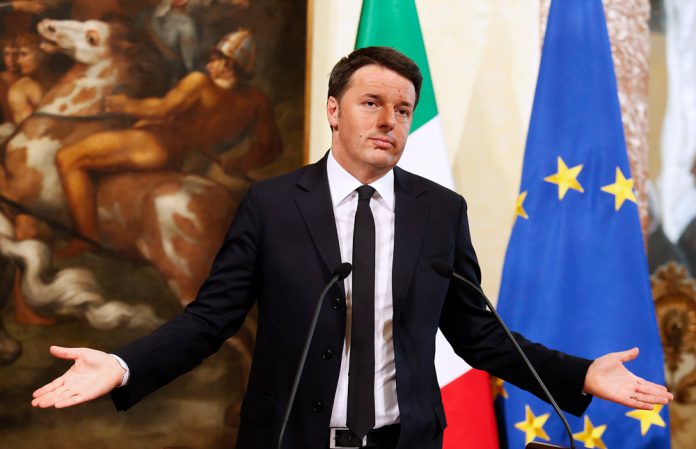Buried beneath media coverage of both the European Referendum in the UK and the presidential election in the US is another vote in Europe – one that has been largely ignored so far. Italy’s Prime Minister Matteo Renzi has risked his career on a constitutional referendum taking place on December 4th and if he loses, the effects could change the course of Europe’s future.
After several years of relative peace and stability in Italy, lurking problems are now coming to a head. Italy’s oldest bank, Monte dei Paschi di Siena, performed the worst in stress tests across Europe and Renzi has gone head-to-head with EU powers to negotiate its bailout. Debt as a percentage of GDP stands at an incredible 132.6 percent, with youth unemployment at 39.2 percent. When Renzi, the youngest Prime Minister in the country’s history, took office in 2014 Italy was hopeful that his progressive centre-left party would put a stop to corruption, streamline politics and kickstart the economy. However, just over two years later, Renzi’s popularity has gone downhill and little seems to have changed.
Italy runs on a bicameral parliamentary system, with both houses having equal power to veto and change legislation. This, combined with the factionalism typical of Italy and a recent rise of far left and right parties unwilling to support Renzi’s government, has led to stagnation in parliament. Renzi’s constutional reform minister, Maria Elena Boschi, has pushed for reforms which will modernise politics and streamline parliamentary effectiveness, saving money and hopefully allowing the government to make the changes necessary to kickstart the economy. It will downgrade the political power of the Senate so that it will no longer be able to obstruct government legislation entirely, but only to propose amendments that will be adopted at the discretion of the lower house, bringing the Italian system in line with most other European countries.

However, in a country dogged by its fascist history, parties on either side are unwilling to extend the power of the executive and the reforms have created a gaping chasm across party politics.
In December, it will be put to the people in a referendum and Italy will be given the chance to change the course of their future – as well as Matteo Renzi’s. After staking his career on a win, the referendum will also serve as a vote of no confidence for Matteo Renzi as Prime Minister.
So far, this referendum has been largely contained to the Italian press with little interest outside the country. But as the date grows closer, European countries should sit up and listen; if Renzi’s government loses the referendum, the political and economic ramifications will be felt across Europe.
If Renzi is forced to step down, it will pave the way for far left and right parties to change Italy’s radicalise Italian politics once more. Renzi’s party, the Democratic Party, suffered painful losses in local elections in June, beaten in key municipalities by the anti-establishment 5-Star Movement and center-right parties, including the Northern League. The Northern League is rebranding as a heavily Eurosceptic party, with leader Matteo Salvini seeing himself as an Italian Marine Le Pen and viewing the Euro as a “crime against mankind.” If Renzi is ousted, a power vacuum will be created that may well be filled with a more radical, anti-European party – likely paving the way for an Italian referendum on European Union membership.
This, in turn, threatens the Euro. Italy is the third biggest economy in the monetary union and one of its core members, and its departure would surely hasten the break-up of the whole euro project. Italy embodies the resentment towards the Euro project, which many say has ‘failed’. There has been a rise of anti-European populist parties across Europe, and allowing them access to mainstream politics in Italy would only encourage the same in other countries possibly leading, ultimately, to the break-up of the European Union.

